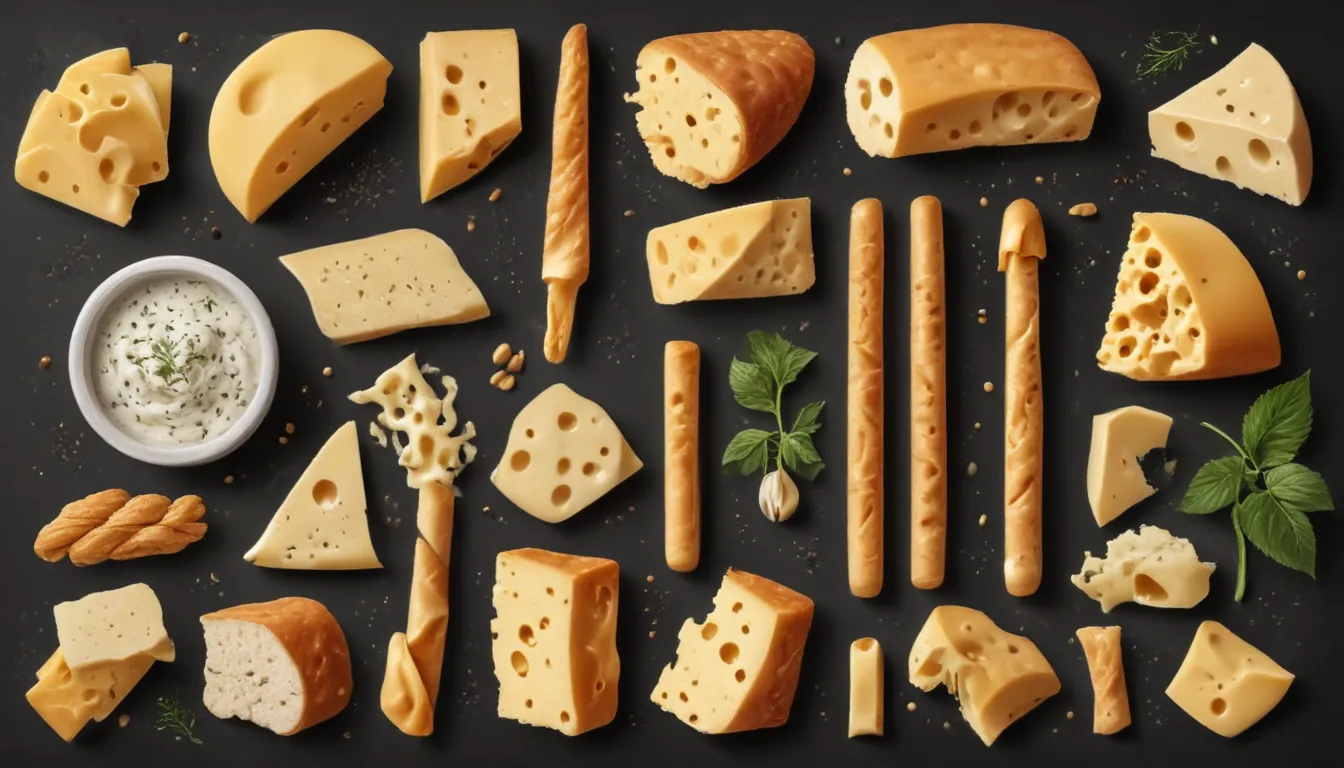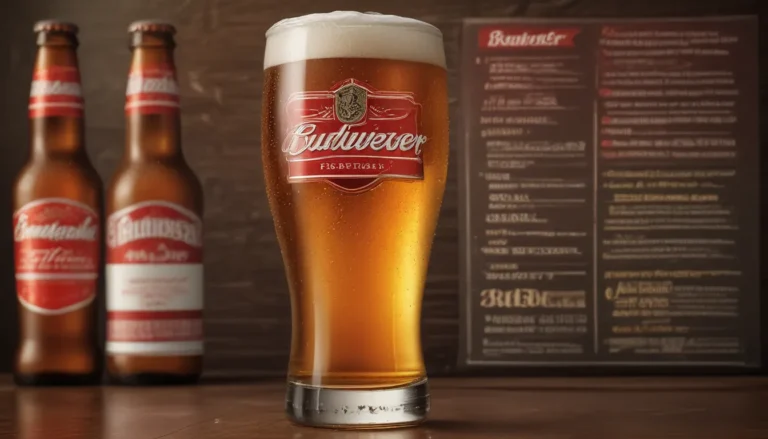The pictures in our articles might not always show exactly what the text is talking about. We use these images to make the article more interesting and eye-catching. They are there to add to the text, but not to replace it or show every detail.
Cheese sticks are a popular snack choice for people of all ages. Not only are they delicious, but they also offer a variety of nutritional benefits. In this article, we will delve into 20 cheese stick nutrition facts that showcase the goodness these snacks provide. From protein and calcium to essential vitamins and minerals, you will learn why cheese sticks are a fantastic addition to your diet.
The Nutritional Value of Cheese Sticks
Calories
One of the key benefits of cheese sticks is their relatively low calorie content. On average, a single cheese stick contains approximately 80 to 100 calories, depending on the brand and type.
Protein
Cheese sticks are a great source of protein, with each stick typically containing about 5 to 8 grams. Protein is essential for building and repairing tissues in the body, making cheese sticks a valuable addition to your diet.
Calcium
Calcium is vital for maintaining strong and healthy bones. Cheese sticks are rich in calcium, providing approximately 15% of the recommended daily intake per stick. Including cheese sticks in your diet can help improve bone density and prevent conditions like osteoporosis.
Vitamins and Minerals
In addition to protein and calcium, cheese sticks also contain essential vitamins and minerals that support overall health:
- Vitamin A: Each cheese stick offers about 6% of the recommended daily intake of vitamin A, necessary for good vision and a healthy immune system.
- Vitamin B12: Cheese sticks are a good source of vitamin B12, providing approximately 8% of the recommended daily intake, essential for red blood cell formation and nerve function.
- Phosphorus: Cheese sticks offer around 15% of the recommended daily intake of phosphorus, a mineral crucial for bone and teeth health and energy metabolism.
- Vitamin D: Cheese sticks contain a small amount of vitamin D, promoting calcium absorption and overall bone health.
- Zinc: Each cheese stick provides a small amount of zinc, supporting various bodily functions, including immune system health and wound healing.
Maintaining a Healthy Balance
Sodium and Fat Content
While cheese sticks are flavorful, it’s important to be mindful of their sodium and fat content:
- Sodium: On average, a cheese stick contains about 150 to 200 milligrams of sodium. If you’re watching your salt intake, enjoy cheese sticks in moderation.
- Fat: Cheese sticks are relatively low in fat, with each stick typically containing around 5 to 8 grams. This makes them a healthier alternative to other snack options.
Cholesterol and Dietary Considerations
Cheese sticks do contain cholesterol, but the amount varies depending on the cheese used. On average, a cheese stick may have about 15 to 20 milligrams of cholesterol. It’s worth noting that dietary cholesterol has less impact on blood cholesterol levels than previously thought.
Other Essential Nutrients
In addition to the nutrients mentioned above, cheese sticks also provide:
- Riboflavin: Also known as vitamin B2, riboflavin is necessary for energy production and maintaining healthy skin.
- Vitamin K2: Cheese sticks contain vitamin K2, which aids in blood clotting and supports bone health.
- Iron, Magnesium, and Potassium: While cheese sticks are not significant sources of these minerals, they do offer trace amounts that can contribute to your overall intake.
Enjoy the Benefits of Cheese Sticks
Snack and Savor
Cheese sticks offer a delightful snacking experience, with their creamy texture and savory taste pleasing your taste buds. Enjoy these tasty morsels while reaping their nutritional benefits for overall well-being.
In Conclusion
In conclusion, cheese sticks are more than just a tasty snack; they also provide a multitude of nutritional advantages. From protein and calcium to essential vitamins and minerals, cheese sticks can enhance your overall health. Remember to enjoy them in moderation as part of a balanced diet.
FAQs
Is protein content high in cheese sticks?
Yes, each cheese stick typically contains about 5 to 8 grams of protein.
How many calories are present in a cheese stick?
On average, one cheese stick contains around 80 to 100 calories.
Can cheese sticks help meet daily calcium needs?
Absolutely! Cheese sticks are a rich source of calcium, offering about 15% of the recommended daily intake per stick.
Are cheese sticks high in sodium?
Cheese sticks contain a moderate amount of sodium, with an average of 150 to 200 milligrams per stick.
Are there vegetarian options for cheese sticks?
Yes, many brands offer vegetarian cheese sticks made with non-animal rennet. Check the packaging or product description for details.
Trust in our commitment to quality and authenticity as you explore and learn with us. Thank you for joining us on this journey towards healthier snacking habits with cheese sticks!






